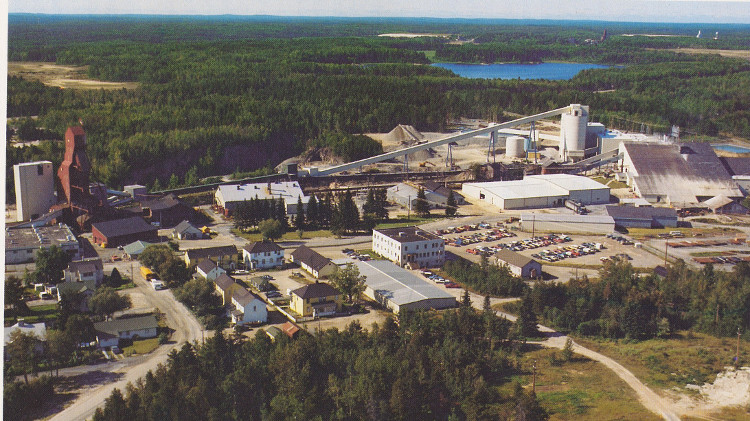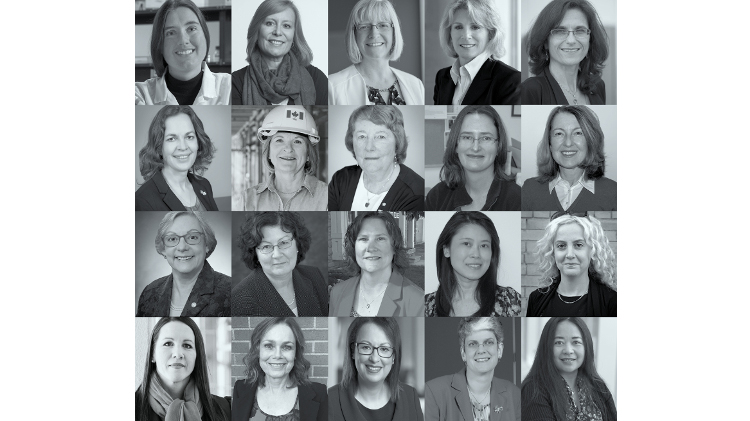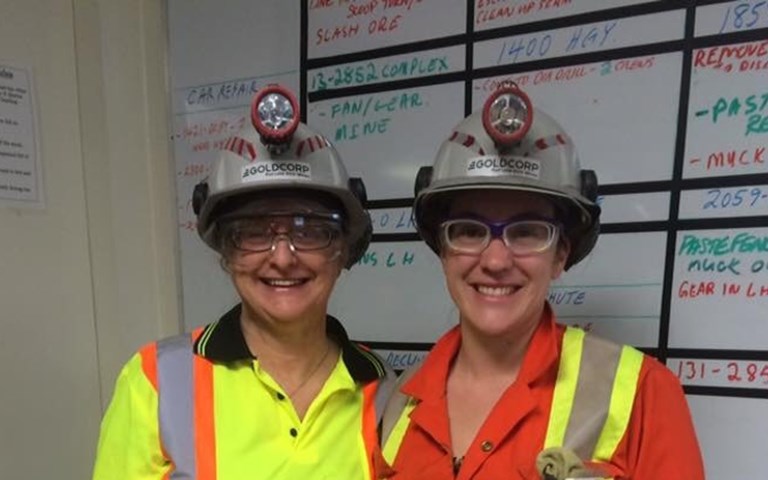Maura Kolb (right), exploration manager at Goldcorp's Red Lake mine, with her mother during Family Day at Red Lake Mine. Courtesy of Maura Kolb
Maura Kolb is more familiar with analyzing rock samples than computer code, but as exploration manager at Goldcorp’s Red Lake gold mine, she now finds herself in charge of an innovative approach to exploration that involves both.
The project, in partnership with IBM, uses IBM’s Watson artificial intelligence platform to identify exploration targets at the Ontario mine. Since the project was launched in March 2017 at the Disrupt Mining event at PDAC, Goldcorp says the time it takes to process survey data has fallen by 97 per cent.
“Being able to go through [our data] quickly, that’s something no one else can do right now,” said Kolb. “We can ask questions of our data that we haven’t been able to in the past.”
The main goal of the project is to use Watson to help identify high-grade areas at Red Lake that were previously overlooked by human eyes. If the project is successful, Goldcorp plans to expand the technology to other mines.
Kolb said that Goldcorp hopes this project will allow geologists to quickly query for information and sort based on features of interest. She said people in her department spend 80 per cent of their time the conventional way – weeding through data. An easier way to find, filter and compare data would make them much more productive.
The company is also hoping to use Watson to predict where deposits are likely to be found in a given data set and teach it to pull data from maps using imaging recognition to better exploit archived data in paper form.
“I think that one of the reasons this project is so interesting is that every exploration team worldwide struggles with being able to use all of their data,” Kolb said.
Related: Disrupt Mining winner finalizes $1-million investment with Goldcorp
So far Kolb’s team has taught Watson to read structural measurements from maps, but have not yet advanced to other data sets.
Kolb originally came to Ontario to complete her master’s of geology at Lakehead University. She worked as a consultant in Thunder Bay for a several years until 2013, when she and her husband, also a geologist, took jobs at Goldcorp, just days after the birth of their first son. She was tapped to lead the project when it began last year.
IBM has said the project is not meant to replace geologists, but to help them do their jobs better and save them time. “Unlike the computer, we can’t read everything in our database and retain it all,” said Kolb. “That supercomputing power is something that will enable geologists to do even more than if they’d just worked here a few years and tried to soak it all in.”
Other possible uses for machine learning include everything from remediation to repairs. “There’s a lot of different applications for mining,” Kolb said. “We’ve just started from an exploration geology side.”
Discover more of our 2018 Names to Know




